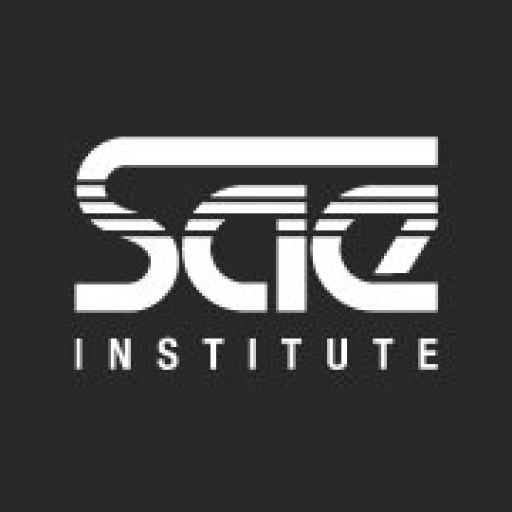Photos of university / #officialuom
The BSc Audiology programme at The University of Manchester offers students a comprehensive foundation in the science of hearing and balance, preparing them for a rewarding career in audiological sciences and healthcare. Designed to provide a blend of theoretical knowledge and practical skills, this degree explores the anatomy and physiology of the auditory and vestibular systems, as well as the pathological conditions that affect hearing and balance. Students will learn about state-of-the-art diagnostic techniques, audiological assessment procedures, and the development of intervention strategies to improve communication and quality of life for individuals with hearing impairments. The programme emphasizes critical thinking, problem-solving, and effective communication, equipping graduates with the abilities needed for clinical practice, research, or further postgraduate study. Through a combination of lectures, laboratory work, industry placements, and research projects, students gain hands-on experience in audiology clinics, working with real patients and cutting-edge technology. The curriculum is regularly updated to reflect recent advances in audiology, ensuring that graduates are well-prepared to meet current clinical and technological challenges. The University also fosters an environment of interdisciplinary collaboration, linking audiology with related fields such as speech and language therapy, ENT medicine, and neuroscience. Graduates of the BSc Audiology programme are highly valued in healthcare settings, research institutions, and industry, with many pursuing careers as audiologists, hearing scientists, or audiological researchers. The programme is accredited and supported by leading professional bodies, ensuring that students receive a recognized qualification that meets industry standards. With excellent teaching resources, state-of-the-art equipment, and dedicated academic staff, The University of Manchester's BSc Audiology programme offers an academically rigorous and practically oriented education, preparing students to make a positive difference in the lives of individuals with hearing and balance disorders.
The MSc Audiology programme at The University of Manchester is a comprehensive, professionally oriented course designed to equip students with the essential knowledge and practical skills required for a successful career in audiology. This programme offers a blend of theoretical learning and practical training, emphasizing current clinical practices, evidence-based approaches, and emerging technologies in the field of audiology. Students will explore core topics such as auditory anatomy and physiology, speech and hearing sciences, diagnostic assessment techniques, and intervention strategies for individuals with hearing impairments. The course also covers aspects of balance assessment, tinnitus management, and hearing aid fitting, ensuring graduates are well-prepared for a range of clinical settings.
Throughout the programme, students benefit from state-of-the-art laboratories and clinical simulation facilities, providing hands-on experiences in audiological assessments and interventions. The curriculum is designed to develop critical thinking, problem-solving skills, and professional competence, enabling students to deliver high-quality care and support to their patients. Additionally, the programme incorporates interprofessional learning opportunities, allowing students to collaborate with peers from related healthcare disciplines, enhancing their teamworking and communication abilities.
The course also emphasizes research literacy and evidence-based practice, encouraging students to engage with current literature and contribute to ongoing advancements in audiology. An integral part of the programme is a supervised clinical placement, which provides real-world experience and the opportunity to develop professional skills under the guidance of experienced clinicians. Graduates of this programme are eligible to register with relevant professional bodies and pursue careers in hospitals, community clinics, audiology practices, and research institutions.
By completing the MSc Audiology at The University of Manchester, students will be equipped with a solid foundation in scientific principles, advanced clinical skills, and a compassionate, patient-centered approach. The programme aims to produce competent, reflective audiologists capable of making a positive impact on individuals with hearing and balance disorders, ultimately improving their quality of life through professional audiological care.
Program requirements for the Audiology BSc (Honours) at The University of Manchester include a combination of academic qualifications, specific subject prerequisites, and language proficiency standards. Applicants are typically expected to have completed these prerequisites: A-levels or equivalent qualifications with a focus on science subjects such as Biology, Chemistry, or Physics. The typical offer may specify AAA or equivalent, though this can vary each year depending on applicant pool competitiveness. In addition, applicants should demonstrate a good understanding of human biology and anatomy, as well as an interest in healthcare sciences. Launching into the application process, prospective students are encouraged to possess relevant experience or a keen interest in audiological practices, which can be evidenced through voluntary work, work experience, or related academic projects.
For international students, proof of English language proficiency is required, often fulfilled through tests such as IELTS with a minimum overall score of 6.5, including at least 6.0 in each component, or equivalent scores in other approved tests like TOEFL. The program emphasizes the development of practical and clinical skills, thus applicants with good communication skills, attention to detail, and problem-solving abilities are highly valued. Furthermore, applicants must complete an online application through UCAS and include relevant academic transcripts, personal statement, and references. The university may also require a supplementary statement to assess an applicant's motivation and suitability for the demanding nature of the program.
During the admissions process, the university may conduct interviews or request additional evidence of interest in audiology or healthcare sciences. Once admitted, students are expected to adhere to the university's health and safety requirements, which include immunizations or health checks pertinent to clinical practice placements. Throughout the course, students are enrolled in modules that require consistent participation, assessments, and practical exams, emphasizing understanding of auditory systems, hearing assessment techniques, and rehabilitation strategies. The program also encourages clinical placements at affiliated hospitals or audiology clinics, requiring students to meet specific health and background check criteria. Overall, the program aims to select students with a strong academic background, relevant experience, and the motivation to advance in audiological sciences to ensure their success in both academic and clinical settings.
The University of Manchester offers various financing options for students enrolled in its Audiology program. Tuition fees for UK and international students differ, with current figures indicating that UK students pay approximately £9,250 per year, while international students pay around £23,000 annually. These fees cover access to university facilities, academic resources, and support services essential for a comprehensive learning experience in audiology. Students are encouraged to explore financial aid opportunities, including scholarships, bursaries, and grants provided by the university based on academic achievement, financial need, or specific criteria such as nationality or field of study. The university also offers postgraduate loans for eligible students pursuing a master's degree in Audiology, which can help offset tuition costs and living expenses. Additionally, part-time work opportunities are available on campus, allowing students to earn income while studying. The university’s Financial Aid Office provides detailed guidance on application procedures, eligibility requirements, and deadlines for various funding options. International students should also consider external funding sources, such as government scholarships or sponsorships specific to their home country. Loan programs from national governments or international organizations may be available, depending on the student's country of origin. Students are advised to carefully plan their finances before beginning their studies, including budgeting for accommodation, health insurance, study materials, and personal expenses. The university's commitment to accessible education is demonstrated through efforts to support students from diverse financial backgrounds, ensuring that qualified individuals can pursue a career in audiology without undue financial hardship. Overall, the financing options at the University of Manchester aim to make education in audiology more attainable and to support students throughout their academic journey, from application to graduation.
This programme in Audiology at The University of Manchester offers students an in-depth understanding of hearing and balance sciences, equipping them with the clinical skills necessary to assess and manage hearing, balance, and tinnitus disorders. The course is designed to combine theoretical knowledge with practical training, preparing graduates for careers in audiology within healthcare, research, and industry settings. Students will explore the anatomy and physiology of the auditory and vestibular systems, learn about the pathology of hearing impairments, and develop proficiency in diagnostic techniques and amplification devices. The curriculum covers evidence-based audiological practices, communication strategies with patients, and the use of advanced technology such as audiometers and cochlear implants. The programme includes placements and practical sessions in clinical environments, providing real-world experience in hearing assessments, hearing aid fitting, and rehabilitation procedures. Students will also delve into topics such as paediatric audiology, balance assessment, and tinnitus management. The programme aims to foster critical thinking, problem-solving skills, and a strong foundation in research methodology to contribute to advancements in audiology. Graduates of this course are well-equipped for registration as audiologists and can pursue further specialization or research opportunities. The University of Manchester's research-led environment ensures students have access to cutting-edge developments in audiology and related fields. Overall, this programme prepares students for a professional career in audiology, offering a comprehensive education that combines scientific principles with practical application in clinical and community settings.









